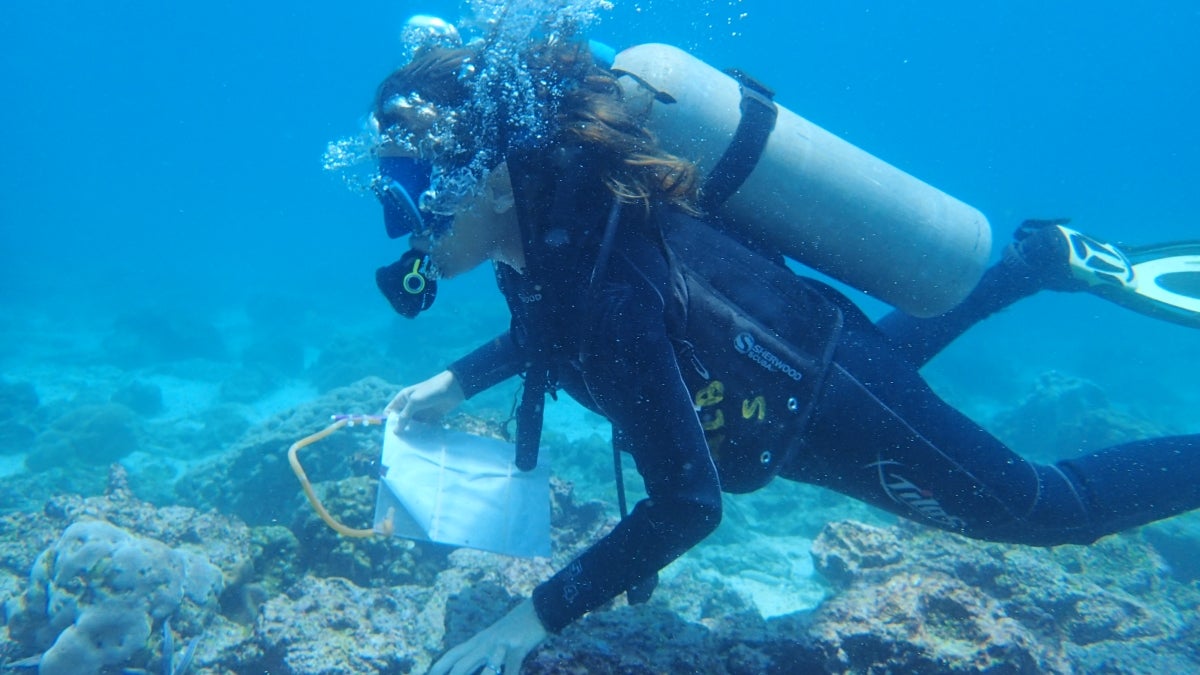Editor's note: This story is being highlighted in ASU Now's year in review. Read more top stories from 2019.
On May 6 at the UNESCO world headquarters in Paris, the United Nations released a global assessment on biodiversity as part of the Intergovernmental Science-Policy Platform on Biodiversity and Ecosystem Services (IPBES). It is the first large-scale global assessment on biodiversity since 2005.
The IPBES report — a “health check” on the biodiversity of Earth — provides a summary of the world's status in relation to international goals including Sustainable Development Goals, the Aichi Biodiversity Targets and the Paris Agreement on climate change. In addition to assessing current biodiversity status, the global assessment discusses likely future pathways over the next three decades if current trends continue.
Arizona State University’s Leah Gerber, a professor in the School of Life Sciences, a senior sustainability scientist in the Julie Ann Wrigley Global Institute of Sustainability and founding director of the ASU Center for Biodiversity Outcomes, was one of the lead authors of the IPBES global assessment. Gerber provides her thoughts on the assessment and what needs to be done to improve biodiversity of the planet.
Question: What does the global assessment provide?
Answer: The global assessment offers an integrated overview of where the world stands in terms of biodiversity, especially in relation to key international goals. The report outlines the importance of nature and nature’s contributions to human’s quality of life, noting that nature and its contributions underpin humanity’s cultural diversity. It also details trends in nature and how it is responding to an ever-enlarging human imprint on the planet, noting that human impact on the planet is resulting in a decline of many of nature’s contributions to humanity.
The report outlines the “drivers of change” in biodiversity, including land-use change, direct exploitation of biodiversity, climate change, pollution and invasive species. And it considers if major global policy goals can be met, like can they meet the “triple threat” of climate change, food security for all and conservation of biodiversity.
Q: Can IPBES be accurately portrayed as the biodiversity component to the climate-change report IPCC?
A: IPBES is the "IPCC for biodiversity." The global assessment represents an integrated health checkup for the planet’s many life forms. It is the first such report since the landmark Millennium Ecosystem Assessment was published in 2005. The IPBES global assessment will be presented to representatives of 130 governments.
Q: Why should we be concerned about biodiversity on Earth?
A: Biodiversity is nature, all aspects of nature. This includes all of the species — plants, animals and microorganisms — and the ecosystems they form. Conservation of global biodiversity is important to sustaining human life at local and global levels. Humans depend on the healthy functionality of other life forms to sustain food growth, water resources and a healthy environment.
Global biodiversity loss is occurring at alarming rates — an estimated 100 to 1,000 times faster than pre-human levels — and the threats are numerous. Among them are urbanization, invasive species, pollution, overexploitation and increasing carbon dioxide concentrations. Addressing each of these threats is complicated, and any possible solution can generate new issues. However, without intervention the populations of many species will continue on the road to extinction and loss of biodiversity. The enormous scope and uncertainty of the crisis is a complex challenge to address. It demands the engagement of social and biological scientists, decision and policy makers, and community members worldwide.
Q: What do reports like this (human impact on climate, on biodiversity) say about our relationship with Earth?
A: We should be concerned with the plight of biodiversity as it provides a wide range of products (food) and services (clean water, shelter) that make our lives possible and which allow us to thrive. We also have a responsibility to effectively conserve and manage these resources. Because humans depend on the healthy functionality of other life forms to sustain food growth, water resources and a healthy environment, transformative change in how we live on this planet is urgently needed.
Q: What was your specific involvement in the report, and what did you learn from it?
A: As a lead author for the global assessment, I worked with a team of 150 leading international experts from 50 countries over a three-year period.
I’m most excited about the outcomes that will emerge from this monumental effort. We are now in a position to begin developing decision-making frameworks for implementing options described in the global assessment. A first step will be to begin prioritizing actions and budget allocations to minimize biodiversity loss, where decisions can be informed by the species’ recovery needs, economic considerations and other social values such as feasibility and stakeholder needs.
Top photo courtesy of Leah Gerber
More Law, journalism and politics

ASU's Carnegie-Knight News21 project examines the state of American democracy
In the latest project of Carnegie-Knight News21, a national reporting initiative and fellowship headquartered at Arizona State University’s Walter Cronkite School of Journalism and Mass Communication…

Arizona secretary of state encourages students to vote
Arizona Secretary of State Adrian Fontes looked right and left, taking in the more than 100 students who gathered to hear him speak in room 103 of Wilson Hall.He then told the students in the Intro…

Peace advocate Bernice A. King to speak at ASU in October
Bernice A. King is committed to creating a more peaceful, just and humane world through nonviolent social change.“We cannot afford as normal the presence of injustice, inhumanity and violence,…
